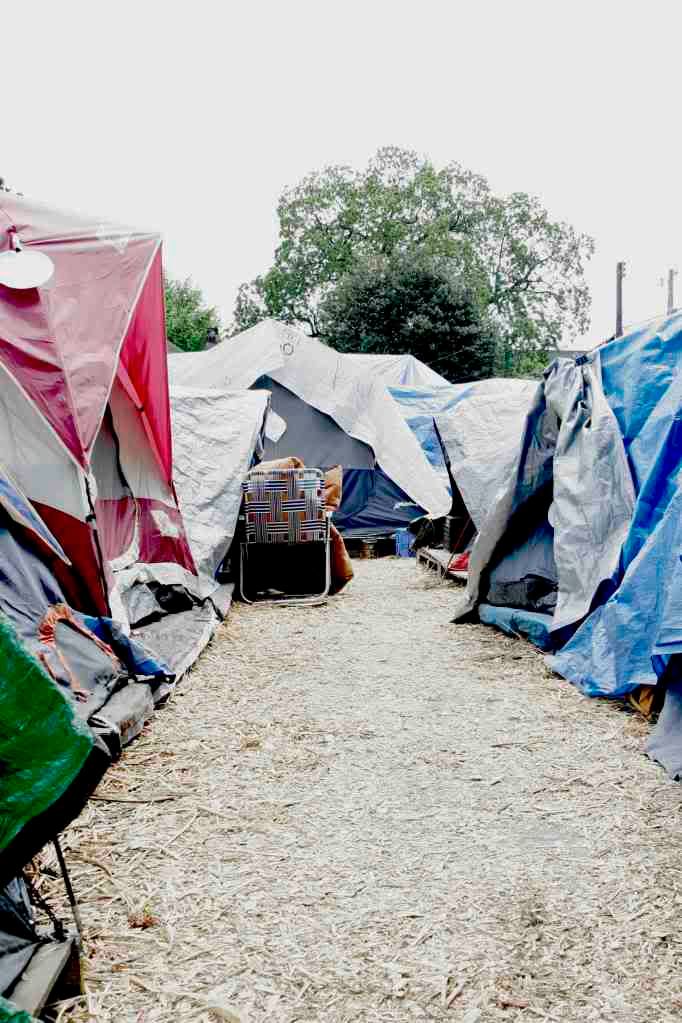by BOB NASH
Although the Associated Students of the University of Washington are recommending to President Emmert that the school host Seattle's Tent City 3, not everyone is in favor of having the homeless residing on campus.
While the debate between students continues to take center-stage, reactions to the proposal by tent city's residents have taken a back-seat to the controversy.
Spokesmen for the camp said nearly all of the residents favor the idea. Residents cited different reasons for wanting to come to the UW. Some want better living conditions. Others want to challenge students' thinking, to engage them in a mutual learning environment.
Students in favor of tent city residing on campus have gone viral, having created two groups on Facebook to promote their cause.
A third Facebook group is campaigning against extending an invitation to the 100 or so homeless people living in tents. The group cites safety concerns in welcoming the homeless to the University of Washington--concerns that many may consider homeless stereotypes.
Tent City 3 residents say the characteristics described are not associated with their tent city, most of them relating to drugs, alcohol, and violence. All of which are not tolerated at the camp.
Despite these restrictions, students like UW journalism major Katie Paff still object to bringing a tent city to campus.
“The university is an inappropriate place for Tent City 3," said Paff, declining to provide examples of why the tent city would be a problem to the institution. "Students and parents pay high tuition rates to go here and they shouldn't have to fear for their safety.”
The stigmatism that comes along with homelessness is nothing new to Tent City residents. Long-time resident and camp advisor to the Elected Committee at tent city, Lance Rowland said tent city initially faces opposition everywhere it goes.
“We run into the same thing you're witnessing right now, which is the fears, the hatreds, the phobias, the misinformation, the 'not in my neighborhood stuff,'” he said. “It's these stereotypes that are designed to keep us down, keep us in place."
Rowland explained that writing stories about homelessness doesn't change stereotypes. It takes engagement and learning.
“The words, the print, doesn't change fears and phobias," he said. "What changes it is the reality, eyes on, first hand, irreprovable real stuff.”
A former senior systems analyst for Physio-Control Corporation, makers of the first battery-operated cardiac defibrillator, Rowland is very articulate.
The proposed stay at the UW makes camper Robert “Shady” Gordon feel good. He thinks there are barriers preventing their stay on campus. Barriers founded in stereotypes.
“There are people here with degrees, that have owned businesses. Life has just kicked them in the butt, that happens, a lot,” Gordon said. “Just because we're homeless doesn't mean were not good people.”
E.J. moved to Tent City 3 for safety. He had a spinal infection that left him debilitated. He lives in pain, barely able to walk.
“I feel safe here," he said. "I don't have to worry about coming back and having all of my stuff stolen. Out there you're on your own.”
On the streets, E.J. says he was stabbed six times and had his jaw broken with brass-knuckles.
“There are currently 102 people at Tent City 3 and more than half of them work," he said.
Residents would like to improve their living conditions and aren't asking much of the university. A little more space, a flat area to camp on, more than one power cord and more than one water hose would be nice, they say. Resident Linda Richards said it's more space that she'd like.
“I would be very, very pleased if we could go there,” Richards said, “It's a bigger place. We're to cramped and I had to down-size the tent, which is like living in a closet. It's not easy to live in a tent so small.”
Residents see a stay on campus as a way to increase student's awareness about homelessness, as a way to change social attitudes about them. They acknowledge their roles as teachers.
Camper Mac McGlinchy said, “In all honesty I think it’d be a very good learning experience for not only the UW students because, lets call a spade a spade, most of them there probably got pretty good scholarships or their parents are paying for them and everything and they have no idea about homelessness. Also, the people here in tent city, they too could learn a lot in the process, as to a lack of a better way of putting it, to 'see how the other half lives.'”
Recalling their stay at Seattle University Rowland said SU's president, Father Stephen V. Sundborg, welcomed them, making their stay a “campus-wide priority.”
“Why is it socially unacceptable for someone to go hungry in this country, but yet it is socially acceptable for someone to be homeless?” asked Rowland. "Reality, not fear, is what changes peoples attitudes."
Mostly, residents just want the university to give Tent City 3 a chance to prove the nay-sayers wrong.
E.J. said, “It's really time to open up and see the by-product of your teachings. What do they have to loose? Really, what do they have to loose?”
Subscribe to:
Post Comments (Atom)

No comments:
Post a Comment